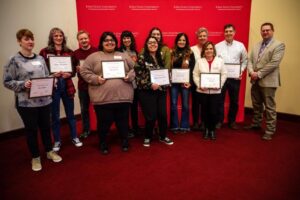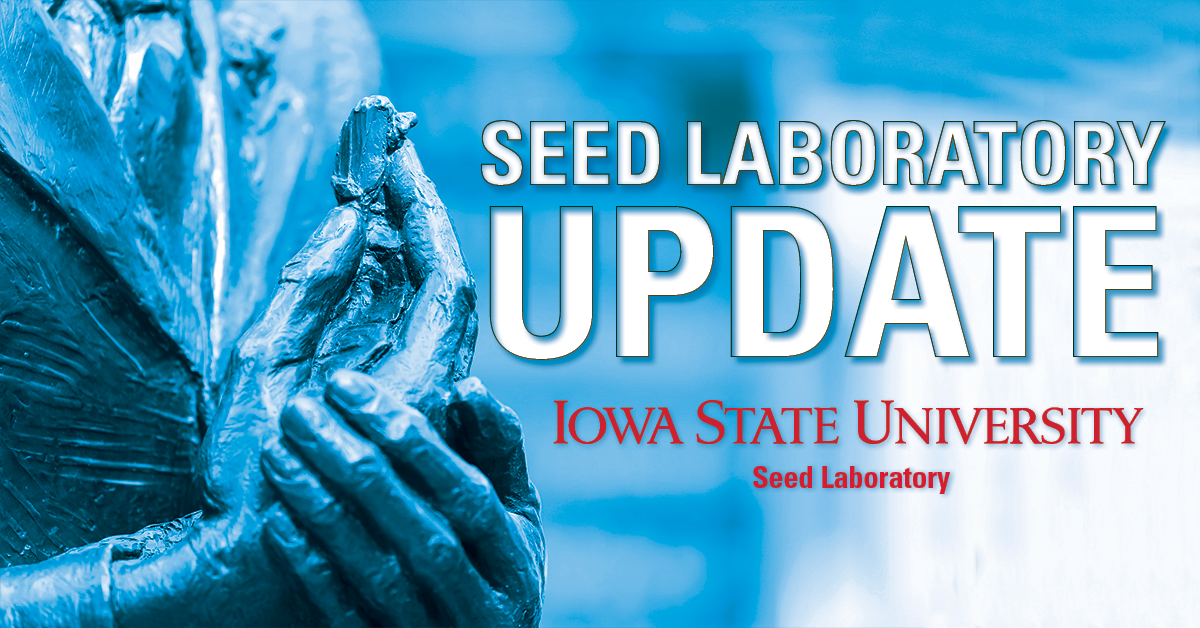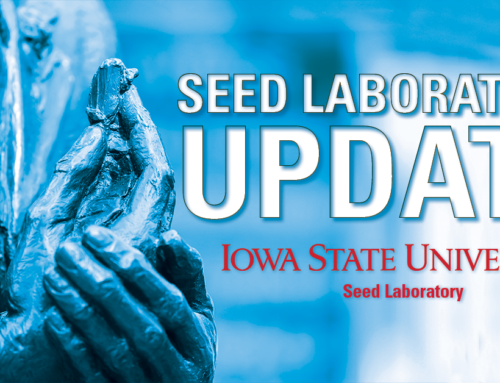 For over 120 years, the Seed Lab at the Iowa State University (ISU) Seed Science Center (SSC) has worked to prevent the distribution of sick or substandard seeds within the US and internationally. But the Lab truly shined during and after the pandemic.
For over 120 years, the Seed Lab at the Iowa State University (ISU) Seed Science Center (SSC) has worked to prevent the distribution of sick or substandard seeds within the US and internationally. But the Lab truly shined during and after the pandemic.
Due to the limited capacity of other seed laboratories nationwide, the Lab went from testing 19,400 samples in 2021 to more than 30,200 samples in2022 (a 55% increase) while expanding the varieties of seeds tested. For this work and more, the Seed Lab was recognized in April with the TEAM “CYtation” Award. The “CYtation” award is given by the ISU Professional and Scientific Council to employes who go above and beyond their normal responsibilities, do something extraordinarily well, and acts in such a way as to make a very real difference in the institution.
“Accomplishing such a fete in the face of stringent industry rules is a testament to the mature expertise of the Seed Lab team,” said Lulu Rodriguez, Interim SSC Director. “The Seed Lab cooperates with national and international organizations to improve testing rules and procedures, standardize analyses and reports, and enhance the uniformity of results within and between seed labs.”
The lab adheres strictly to the quality assurance standards of organizations such as the Association of Official Seed Analysts (AOSA), the Society of Commercial Seed Technologists (SCST), the American Seed Trade Association (ASTA), and the International Seed Testing Association (ISTA).
During COVID, the Seed Lab team really rose to the occasion. They streamlined processes to complete analyses promptly and improved their online service system. In addition to serving and partnering with industry, farmers, and faculty and researchers, the Seed Lab team works with students, providing a practical and hands-on dimension to the theoretical knowledge gained in classrooms, fostering a generation of skilled professionals.
“Seldom heralded is the fact that the Seed Lab is often the first point of contact when seed-borne pathogens or seed testing issues arise to adversely affect the seed industry,” said Rodriguez. “An example is its quick response to the emergence of the High Plains wheat mosaic virus, which became a worldwide phytosanitary export problem in the second half of 2022 when Chile instituted a PCR testing requirement for incoming corn seed.”
This led Seed Lab pathologists jumping into emergency response mode, working with Bayer Crop Science to develop a PCR method for corn seed of which millions of seed lots are produced in Chile each year.
The Seed Lab has become a valuable resource for disseminating knowledge and best practices to local communities, farmers, and organizations in the seed industry. Their contributions to their field have brought international attention to ISU attracting collaborations, partnerships, and students worldwide. By ensuring the availability of high-quality seeds, the Seed Lab is making a meaningful contribution to ensuring a sustainable and secure food supply around the world and for years to come.


